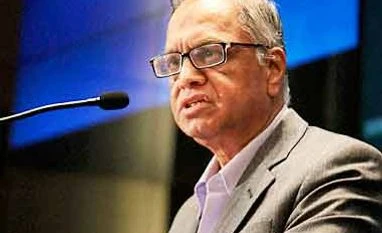“These are all issues that need to be discussed. I have no doubt at all the value of the Indian IT services sector is so high for the US population. These issues will not come in the way of growth of the Indian IT sector,” Murthy told reporters on Friday after meeting communications and IT minister Ravi Shankar Prasad.
“I do not think $4,000 or $2,000 matters much, because the important thing is you have to provide excellent value to the customer. I believe the Indian IT sector is already providing that,” he added.
More From This Section
The US Congress has imposed a special fee of up to $4,500 on the H-1B and L-1 visas popular among Indian IT companies to fund a 9/11 healthcare act and biometric tracking system.
Prime Minister Narendra Modi had, on December 16, shared with US President Barack Obama the Indian IT sector’s concerns on the legislation, which was then under process in the US Congress.
Congressional leaders, while agreeing on the $1.1 trillion spending Bill, decided to impose a special fee of $4,000 on certain categories of H-1B and $4,500 on L-1 visas.
Murthy added the US government has the right to impose any rule. “I am a foreigner as far as the US government is concerned. It is their right to take whatever decision they want to in the best interest of the US. So as a foreigner, what is it that we can do? What we can do is, to work even harder, to work even better so that they can understand the value of the Indian IT industry,” he said.
During his meeting with Prasad, Murthy discussed a number of issues related to the IT sector and the contribution the sector can make for the ‘Digital India’ initiative. Murthy said the Digital India programme has been a success under Prasad. “Looking at the things he has done in the past 15-16 months, I personally feel he is the finest IT and communications minister we have.”
Indian IT sector body Nasscom had, on Thursday, raised its concerns over the decision to increase fee for H-1B and L1 visas, saying it’s a contradiction to US’ call for opening up markets.
“We are increasingly seeing a growing protectionist trend from developed countries like the US who have been strongly advocating India to have a more liberalised trade and business environment,” Nasscom had said, adding the impact of the proposed visa fee hike could put an additional burden of $400 million, annually.
)